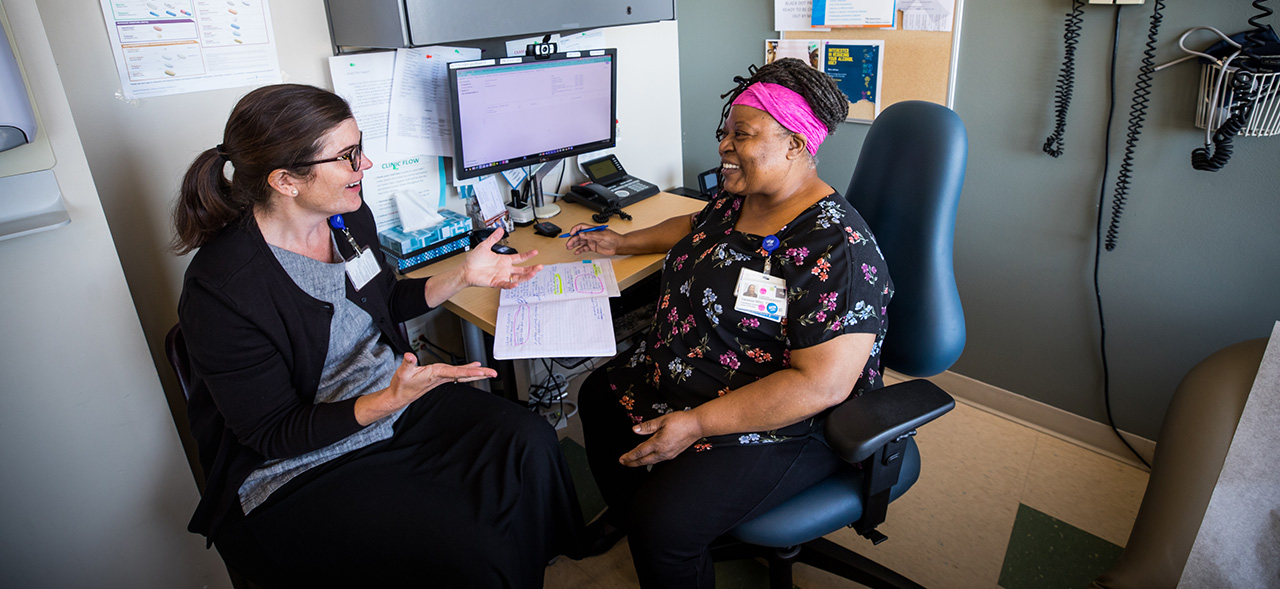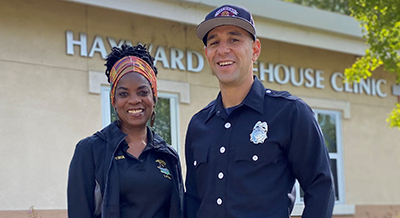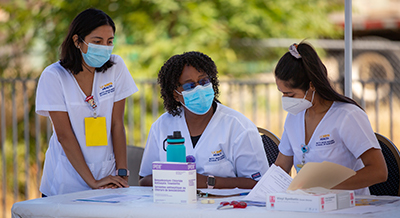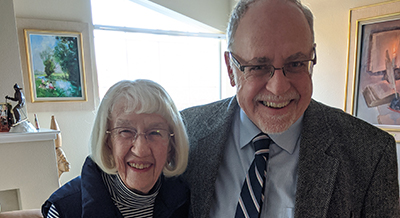More than half of Californians living with mental health illness do not receive the psychiatric care they need. The COVID-19 pandemic only exacerbated the crisis. With the number of psychiatrists in the state expected to decline by 34% over the next decade, the urgency to address the issue is even greater.
“A lot of my patients, if not all, have behavioral health issues. But we cannot find anybody who can take the patient. The first appointment we can get is three months away and that’s not good,” explains Rechie Albano, a family nurse practitioner based south of San Diego.
To answer the call, Albano took advantage of a new initiative launched by four University of California Schools of Nursing — UCSF, UCLA, the UCI Sue & Bill Gross School of Nursing and the Betty Irene Moore School of Nursing at UC Davis. The UC Psychiatric Mental Health Nurse Practitioner (PMHNP) Certificate Program is a one-year, multicampus, hybrid program to prepare nurse practitioners across California as psychiatric mental health specialists.
“A recent report concluded that nearly half of American workers suffered with mental health issues since the pandemic began. And many don’t know where to turn for help,” explains Associate Professor Rosalind “Roz” McNiesh de Lisser, a psychiatric mental health nurse practitioner and UC Davis program director. “These advanced practice providers are poised to promote the integration of mental health services in primary care settings, which reduces barriers to access and boosts providers in rural and underserved parts of the state.”
Many communities in underserved areas don’t have immediate access to needed behavioral health services. Counties throughout Northern California, the Central Valley and the Inland Empire have a ratio of fewer than seven psychiatrists per 100,000 people, compared to as many as 25 psychiatrists per 100,000 in urban regions.
“When I was a nurse here, a followup with a psychiatrist would take three months. Seeing that long waitlist of patients needing intakes, I wanted to be a part of the solution. I wanted to be able to do more,” says Vanndy Loth, a program graduate and current clinical preceptor.
At launch, UCSF was the only accredited PMHNP program in the UC system, so it initially led the curriculum design for the program. When UCI joined the initiative in 2022, the four sister schools agreed to expand enrollment capacity by forming a shared governance structure.
The consortium office, based at UC Davis, works toward statewide accreditation while each school covers a particular region in the state.
While the eight private PMHNP California programs are in major cities — and require in-person attendance and clinical rotations near the school — the UC program is unique. The regional model allows clinical training in the students’ home communities, thus ensuring students may continue working during the program.
“This allows us to lead our local efforts to recruit preceptors from the Northern California region and secure valuable clinical experiences for our students,” explains Stephen Cavanagh, dean of the Betty Irene Moore School of Nursing. “When we are more empowered, we are more able to focus on serving our direct area and making mental health services more equitable statewide.” The program seeks to prepare 300 PMHNPs within five years. With the shared mission of meeting California’s mental health service needs, the four deans from UCSF, UCLA, UCI and UC Davis Schools of Nursing plan to seek accreditation for this consortium in 2024, with the first cohort of students matriculating under the new model in 2024.
“This brings the education to the farthest reaches of the state and actually engages our learners… so that we can get the care to the people who need it most,” de Lisser says.






